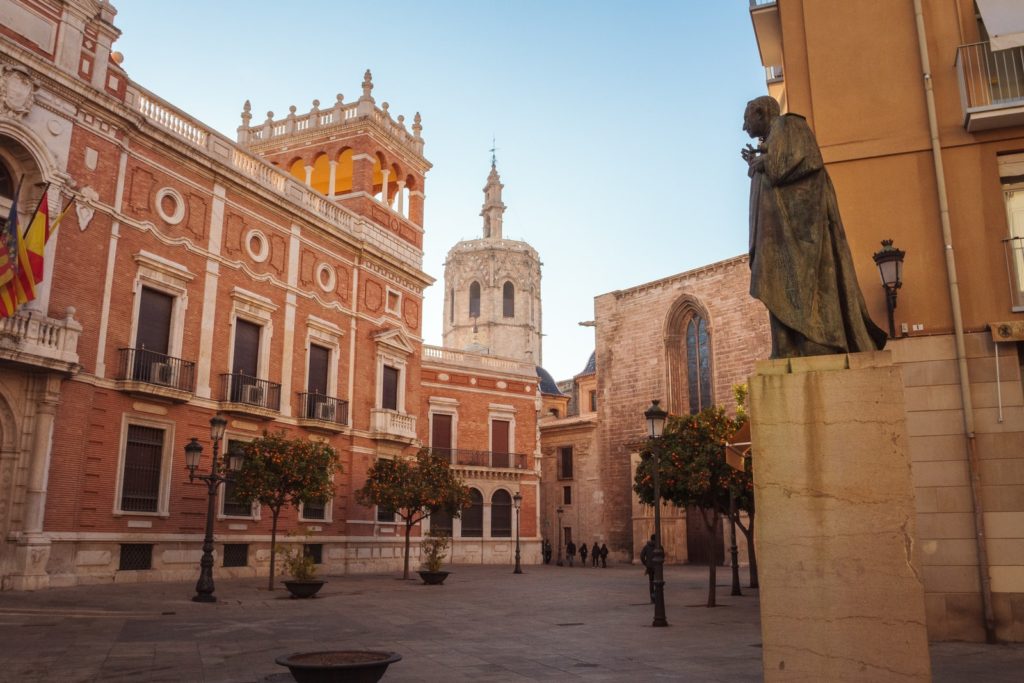Expats in Spain: Essentials Tips For Living in Spain
As one of the most popular destinations for expats and retirees settling in Europe, Spain has long been at the top of many people’s lists when looking to move to the continent. With a textured and colorful history of accepting expats from across the globe, Spain has quickly become a haven for those rebuilding a home away from home on the Iberian peninsula. Expats in Spain not only come for the booming expat culture but for the endless rewards that a Spanish life can provide.
This coveted life can include simple things such as the sun-soaked Spanish summers, the variety of culinary delights, and the overall warmth of the Spanish people. The wide range of accommodation and fruitful property market also attracts those who want to get the most out of their Euros when finding their expat forever home.
Expat life in Spain has its own flavor and feel, something that can come as a shock to some and as a warm welcome to others. Everything from finding the best place to live, discovering suitable accommodation, opening a Spanish bank account, and finding a job must be thought of ahead of time. Read on through this guide, and you will discover the best places to live in Spain as an expat, including what moving to Spain will actually entail and so much more.
1- Pros and cons of living in Spain
Like any expat forum in Spain will tell you, living in Spain comes both with its negatives and well as its positives. As is the case with moving to any new country, balancing up the pros and cons is a sure-fire way of helping you decide whether Spain is the country for you. Encouragingly, there are far more positives to living in Spain than there are negatives – something that is only going to make your decision easier.

Pros of living in Spain:
- Amazing weather – Arguably, one of the biggest factors in choosing to move and live in Spain is its amazing weather. Although Spanish weather and climate can differ depending on where you are in the country and what time of the year it is, overall, the Spanish weather is something to envy. The Spanish summer can see temperatures rise to 40°C (104°F) within the major cities, providing scorching hot summer days and warm summer nights. With endless beaches and a booming alfresco restaurant and cafe scene, this glorious weather is a major factor in large numbers of expats coming to Spain.
- Thriving nightlife and restaurant scene – With seemingly endless summer and lust for life, it is no surprise that Spain has a booming nightlife and restaurant scene. In every city, you will find squares and street corners alive with alfresco dining and lively cafes. With deserved Spanish pride in the culinary expertise of the country, you will find an endless stream of top restaurants and culinary delights. Each Spanish region has its own unique dishes and food-related icons, meaning you are spoilt for choice no matter where you settle in Spain.
- There’s always something to do – Spain is a nation full of life and a love for leisure. No matter where you choose to live as an expat in Spain, you are sure to find a wide range of festivals, events, and opportunities for casual socializing. The jam-packed calendar of religiously and culturally-based festivals means that the Spanish streets are often brought to life with celebrations and festivities all year round. Alongside the traditional festivals, you will find everyday life in Spain is one filled with opportunities. Whether you love the great outdoors and head to the beaches or mountains or prefer to attend a concert, gathering, or cultural event, the opportunities are endless.
- Large expat community – As Spain has been a favorite destination for foreign expats for decades, it is unsurprising that you will find many large expat communities throughout Spain. Major cities such as Madrid, Barcelona, and Bilbao are teaming with expat communities, all of which can be a welcoming sight to the uninitiated. Along with the major booming cities, the southern regions of Andalusia and Alicante are also favorite hotspots for expat communities. This is especially true for the large British expat communities that make up the Costa del Sol. Having this fully-fledged and assimilated community already settled in Spain makes your own transition and resettlement so much easier.
Cons of living in Spain:
- Smaller job market – Fulfilling the dream of expat life in Spain can be difficult if you can’t instantly find employment. Yet, with Spain having one of the highest rates of unemployment in Europe, the job market is highly competitive. If you come from an engineering, technology, marketing, and administration or finance and legal background, you are more likely to find instant employment. However, the unskilled labor market can be frustratingly competitive for expats looking to find work in Spain.
- Bureaucracy – Although the Spanish are often praised and envied for their laid-back approach to life, this can often spill over to bureaucratic processes. As an expat in Spain, you will undoubtedly have to register with various offices and fill out paperwork. Be prepared for slow, formal processes, a lot of waiting, and back and forth. Though the final results are worth waiting for, the laid-back approach to the process can be frustrating to the more streamlined experience you may receive back home.
3- Finding accommodation in Spain
Once you have found the best place to live in Spain, you’ll need to find all-important accommodation.
Accommodation in Spain can be found in an array of different settings and styles, from the humble student one-bedroom apartment to a more elaborate townhouse and beachside residence.
Throughout Spain’s major cities, such as Madrid and Barcelona, you will find the whole spectrum of accommodation and a variety of neighborhoods to fit every expat’s needs.
When it comes to finding accommodation in Spain, you will have either two choices, renting or buying. Buying a property will obviously give you a far more stable base, yet it isn’t always the most affordable option for expats.
The rules and regulations for buying a property in Spain are relatively straightforward. You can obtain a financial number from the local police station, as long as you have your passport, which can be then used in the buying process. Those with a larger budget may opt for the Golden Visa program.
This is where you can obtain an instant residency visa if you invest more than €500,000 in Spanish property.
Renting in Spain will often be a far more popular option for expats in Spain. Using Homelike’s handy property finder, you can find a number of rental properties located all over Spain.
Renting in Spain is a great way to find accommodation quickly, without the huge commitment of buying a home outright. It is important to remember that the tenancy agreement (contrato de arrendamiento) is legally binding when given verbally as well as in writing.

4- Empadronamiento in Spain
Once you have made the successful transition from your home country to Spain and found a place to live, you must ensure you secure an empadronamiento, sometimes shortened to padrón.
A padrón is similar to a census certificate and is essentially a process of letting the local authorities know you are there and where you live. Securing your empadronamiento is important, not only to abide by the Spanish law but to allow you to undergo other processes.
An empadronamiento will be needed to receive your social security number, use public healthcare, apply for residency, and will even be needed to get married.
To obtain the empadronamiento, you will need to fill out a form known as a Solicitud de Empadronamiento or registration application. This form should then be submitted to the Municipal Register.
The information needed on the Solicitud de Empadronamiento will differ depending on the region of Spain you are choosing to settle in and many may require you to book an appointment online.
Along with filling out the Solicitud de Empadronamiento form at the local authorities, you will also need to take a number of things with you. These include your passport, which will need to be up-to-date, and proof of address – this can be something such as a unity bill or rental contract.
This process needs to be completed each time you move protein, whether you are renting or buying your own home.
5- Opening a bank account in Spain
Although having a Spanish bank account isn’t a legal requirement, it will go a long way to helping you manage your finances as an expat living in the country.
With such a large expat community in Spain, many banks have catered to non-residency account users, and the process should be fairly straightforward. Typically speaking, you will need to provide your passport as proof of identity, your Spanish foreigner identification number, proof of address, and proof of employment.
Choosing the right Spanish bank for your needs is an important step, as just like in every other country, banks and their services can differ from bank to bank.
If in the future you will require insurance, pension plans, or a mortgage, it’s important to check whether the bank provides this before opening an account. For expats that don’t speak Spanish, It’s also important to check if a bank provides English-speaking services – international banks will provide this as a standard, whereas the local, regional branches may only offer Spanish-speaking services.
In the fast-paced modern world we are living in, expats in Spain may also want on-the-go mobile banking as part of the service.
There are a number of banks that offer this service, and it makes the whole process easier for banking from your cellphone.
Larger national banks such as BBVA, Santander, and CaixaBank are some of the best banks for online banking in Spain and some in the world.

6- Getting a mobile phone connection/sim card in Spain
Another modern addition that you will undoubtedly want to source when living in Spain as an expat is a sim card. Securing a local Spanish sim card will mean you can be connected 24/7 and not rely on high roaming tariffs from your provider back home.
As a modern and economically strong nation, Spain’s telecommunications industry is good enough that you will not struggle to find a good mobile phone connection and competitive sim card prices.
Spain’s mobile phone market is a highly competitive one, with services being provided by four major companies. These companies include Movistar, Orange, Vodafone, MásMóvil/Yoigo, and a number of mobile virtual network operators.
With so many to choose from, you will be in good hands when finding a sim card provider. Movistar owns around 30% of the market and is seen as one of the best, but it is good practice to shop around and compare the market to find the right deal for you.
There are two options for expats in Spain, to get a prepaid sim or to sign up for a mobile phone contract. Buying a prepaid sim is one of the easiest and fastest ways to get a mobile connection in Spain without wholeheartedly committing to something long-term.
Many mobile companies provide pay-as-you-go bundles, which can be topped up once you have used your allocated data or minutes. This option is ideal for flexibility and its non-committal vibe.
The other option is to sign up for a mobile phone contract with one of the mobile providers. This is a better option if you are looking for something more long-term and secure – and you will also pay far less in the long run.
Contracts usually last for around 18 months and are good for those of you who like to use the newest model of mobile on the market.
7-Finding a job in Spain
Expat groups in Spain are forever stressing the need to find employment in their new home, and with one of the largest unemployment levels in all of western Europe, this isn’t always the easiest thing to do. Yet, with the right outlook, qualifications, and a little luck, finding a job in Spain doesn’t have to be an ordeal.
Although it’s poor practice not to job search through the traditional routes of job sites, agencies, and job adverts, many jobs in Spain are spread through word of mouth and speculative opportunities. With this being the case, it’s always good to get yourself out there and network.
It is unavoidable that the easiest jobs to fall into in Spain are in sectors that are crying out for skilled workers and professionals.
These professions include the engineering, technology, marketing, administration or finance, and legal background sectors. Within these professions, you are far more likely to have instant job offers and even walk into a role.
Providing nearly 14% of all Spain’s employment, the tourist sector is another great place to find a job as an ex-pat living in Spain. As a native speaker with strong English-speaking skills, the tourist sector is a huge employer of ex-pats.
This is especially true for the regions in Spain with large non-Spanish holidaymakers, including the south coast and major cities such as Madrid and Barcelona. Teaching English is another popular job for expats, as your grasp of the language is already there.
There are a number of sources you can use when finding a job in Spain. If you’re from the EU/EFTA, you can find jobs in Spain on the EURES (European Employment Services) website.
Other routes include the Public State Employment Service for roles within the public sector. For hospitality and tourism jobs, you can even rely on good old-fashioned word of mouth by simply dropping in and handing in a CV.
8- Best places to live in Spain
Finding the best place to live in Spain as an expat is a purely subjective decision to make and will highly depend on what you want out of your new Spanish life. From the inner-city hive of the capital Madrid and the popular Catalonian city of Barcelona to the relaxed beach life of Costa Blanca and Costa del Sol or even the mountain retreat life of Valdelinares, Spain has it all.
For a little taste of the Spanish way of life and the myriad of places you can settle, we have noted just a handful of destinations considered the best place to live in Spain as an expat and how they are perfect destinations for your new home.
Madrid
The Spanish capital of Madrid is high on anyone’s list of best places to live in Spain as an ex-pat, and it is easy to see why. The cosmopolitan beating heart of Spain has a little bit of everything and can please even the most homesick of ex-pats.
Being the capital, Madrid is home to a plethora of communities, many of which come from outside of Spain itself. This multitude of ex-pat communities makes Madrid an ideal place to settle, as you will be welcomed by a diaspora from your home country.
Being the capital and geographically central city of Spain, Madrid is also a fantastic place to settle in Spain for purely economic reasons. The city also has some great neighborhoods to live in.
With a booming service industry, the capital’s GDP is 35% higher than the national average and is fertile ground for finding employment.

Barcelona
As the number one visited city in Spain, Barcelona is an obvious place to settle as an ex-pat in Spain.
Not only is it on par with Madrid as an economic powerhouse, but it also has lashings of Spanish and Catalonian culture, something that has attracted visitors and settlers for decades.
Living in Barcelona is ideal for those who love art, culture, and an energy that is only boosted by the many tourists that visit the eastern city every year.
Alongside the comings and goings of tourists, Barcelona also has a huge ex-pat community, made up of nations all over the globe. This sense of internationalism is a welcoming find when you are new to a country and can make your transition so much smoother.
Being such a popular place to live in Spain, Barcelona has a wide range of accommodation to suit every need. The cost of property varies across the city, from affordable apartments and homes in certain neighborhoods to more high-end townhouses and suburban homes.
With a huge student and young population, Barcelona is also perfect for younger ex-pats looking to make their way in Spain.
If you’re planning to live in Barcelona, check out our article on the best neighborhoods to live in Barcelona for some guidance.
Valencia
A little further south along the Spanish east coast is the city of Valencia. Valencia is another of the best places to live in Spain as an expat. Seen as a more affordable alternative to Barcelona, Valencia has many of the same qualities as the Catalan capital, without the hordes of tourists and inevitable high prices.
Valencia has a perfect balance; in many ways, it feels like a cosmopolitan city, and in others, it has the feel of a small town.
The perfect balance of modernity and tradition means that you can settle comfortably into Spain as an expat while still enjoying the Spanish culture and landscapes that you long for.
13% of Valencia’s population are foreigners, and with this huge ex-pat community, settling into your new Spanish life is made all the easier.
9- Learning Spanish in Spain
So, there you are—everything you need to know about how to move to Barcelona!
No matter who you are, moving to Barcelona is a great idea, and it’s a massively popular relocation hub for endless different types of people. It’s perfect for couples, families, solo travelers, old people, young people, and everyone in between. You’ll have a brilliant time, and we absolutely recommend it.
But, as we mentioned, finding a long-term place to live can be tricky, especially if you’re not yet located in the city. So if you’re looking for a short-term flat in Barcelona or a short-term serviced apartment in Barcelona, our places are perfect.
They’re all furnished, modern, comfortable and affordable. But more importantly, they remove all the fuss and stress of scrolling through the internet for endless hours in the fruitless pursuit of finding a place to live. Have a look at our excellent selection of Barcelona apartments here.
Thanks for reading, and we’ll see you next time!























